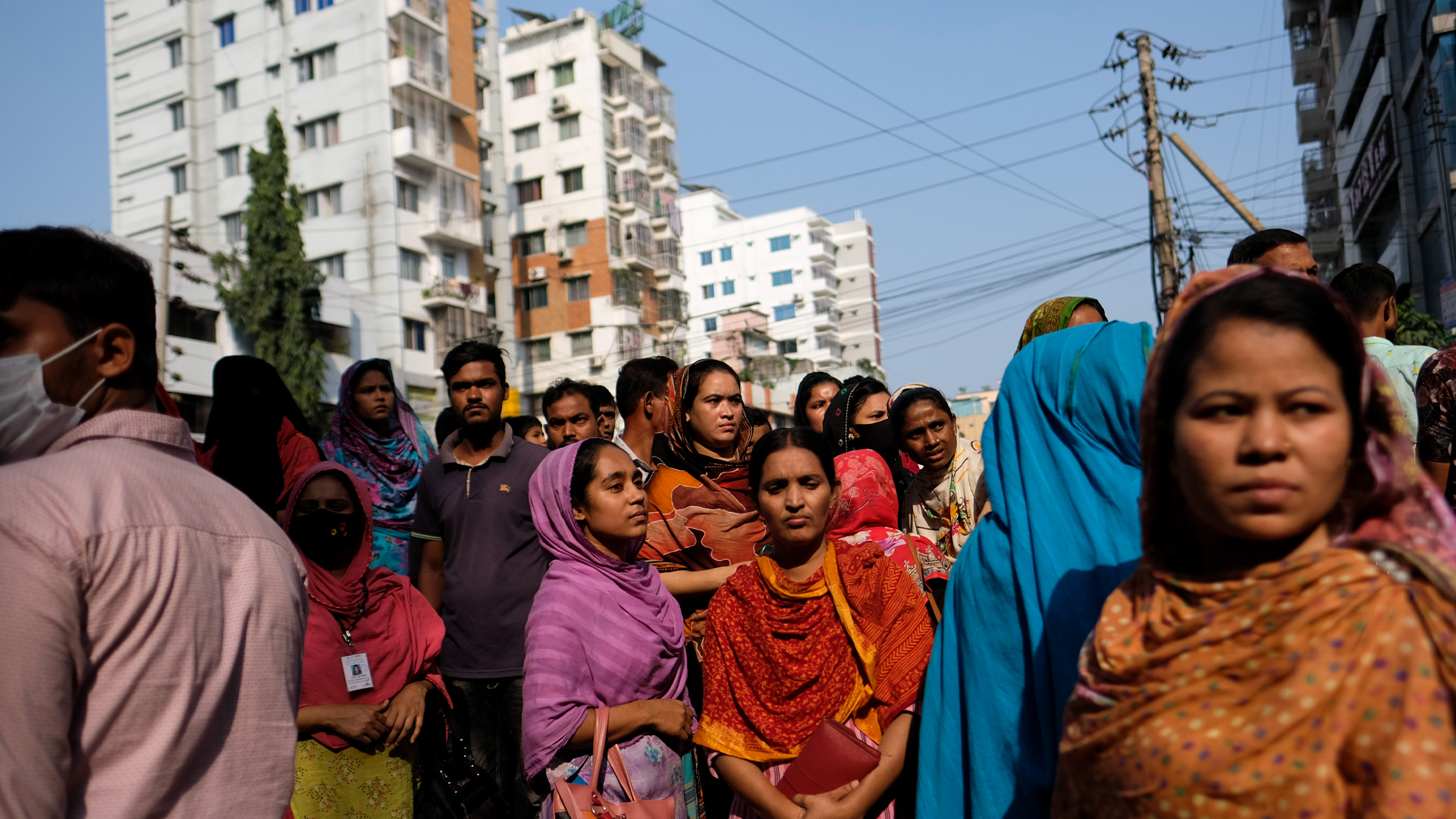
For many people, one of the highlights of the holidays is the annual bargain hunt during the Boxing week sales that roll out in malls and main street shops across Canada.
As shoppers scour for post-Christmas fashion deals, most are likely to overlook garment tags that say, “Made in Bangladesh.”
Home to more than four million garment workers, Bangladesh is the second-largest supplier of clothing and apparel products globally, trailing only China. The ready-made garment sector is a vital part of Bangladesh’s economy, accounting for 84 per cent of its total exports.
While consumers in Canada work their way through shopping racks, both in store and online, they may be oblivious to protests being staged by thousands of garment workers in Bangladesh in support of their demands for a higher minimum wage.
The legal minimum wage for garment workers in Bangladesh had not changed since 2018 when it was set at 8,300 taka, the equivalent of $100 per month. While the government recently raised monthly wages to 12,500 taka ($150), workers have called for nearly double that amount, or 23,000 taka ($275).
Reports of protests turning violent, including clashes with police, suggest at least three workers have been killed. Thousands of protesters have been charged. Labour organizers have faced intimidation and in some cases have been arrested.
The protests have had an impact on factory production. In response, Prime Minister Sheikh Hasina has called on workers to accept the newly announced wage increase.
In September, major global brands in partnership with IndustriALL Global Union, signed an open letter calling for higher wages.
At the same time, calls are mounting for some of the most recognized brands to take further action such as leveraging their buying power to not only commit to wage increases, but to publicly condemn violence against workers and the ongoing suppression of trade union rights in the country.
All of this is happening with the backdrop of approaching elections in Bangladesh which are slated to take place in January 2024. The government accuses the opposition party of fueling garment worker unrest as a way to stoke broader political tensions in the country.
Meanwhile, Bangladesh has been under scrutiny at the United Nations Human Rights Council with governments and international organizations alike drawing attention to wide-scale human rights violations.
Canada can play a role
Canada is no stranger to engaging with policies to support worker safety in Bangladesh. For example, 2023 marked the 10th anniversary of the Rana Plaza factory collapse, a calamity that made headlines around the world because more than 1,100 workers were killed and thousands of others injured.
Canadian apparel retailer Joe Fresh had garments produced at the facility. In the wake of that disaster, Canada worked alongside other governments and the United Nations to better support worker safety in the country, not through enforcement but through facilitation and partnership.
Specifically, Canada signed on to the sustainability compact, along with the United States, the European Union, the government of Bangladesh and the International Labour Organization (ILO). Canada also supported the ILO’s ready-made garment program, in partnership with the Netherlands and the United Kingdom.
Governments play a pivotal role in establishing and enforcing labour standards, ensuring fair wages and promoting transparency throughout the supply chain.
Bangladesh’s garment workers need Canada to do its part
Bangladesh has come a long way, but it still needs Canada
One example is Canada’s Indo-Pacific strategy (IPS), which specifically mentions “enhanced rules of trade” involving labour rights protection and calls for businesses to follow best practices in supply chain management.
Regrettably, despite mentioning China 51 times and India 20 times, the IPS, which Ottawa calls a high-level policy document requiring a “generational Canadian response,” makes no mention of Bangladesh.
Canada enjoys a level of influence in international diplomacy which opens the door to strategic intervention that can make a difference. Fashion is political, after all, not only through the sartorial decisions of politicians but also through the policy choices enacted by political agents and governmental organizations.
If Canada seeks to redress issues connected to worker unrest across global supply chains — issues woven within the fabric of products bought and sold within its national borders — it must first acknowledge how its policy actions have hindered worker rights in Bangladesh and beyond.
Boxing Week sales will come and go. Labour rights are a pressing issue that won’t go away.
What actions might Canadian consumers take to play a meaningful role in supporting fair labour practices within the fashion industry? Informed consumer choice can help drive a desire for change.
However, the change itself can come only through industry-wide commitments. The federal government must take seriously its complicity in supporting global fashion and apparel production systems that support and protect workers’ rights and well-being.











